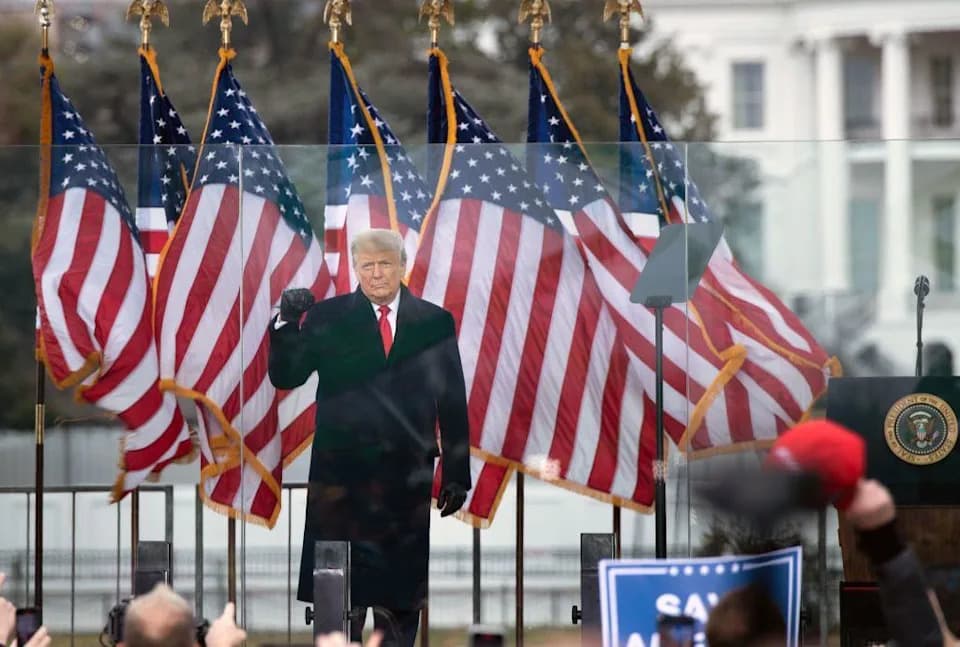President Trump says he will sue the BBC for $1bn–$5bn over an edited Panorama clip that he says misrepresents his January 6 remarks, despite a BBC apology. The editing error prompted senior resignations at the BBC and a formal apology, but the broadcaster rejects a defamation claim. UK defamation time limits mean any action would likely be brought in US courts, where Trump would need strong evidence of material reputational or financial harm. The BBC argues the clip was shortened for editorial reasons and was not distributed in the US.
Trump to Sue BBC for Up to $5bn After Panorama Edit; BBC Apology Sparks Leadership Resignations

Trump announces lawsuit against BBC despite apology
US President Donald Trump says he plans to sue the BBC for between $1 billion and $5 billion, claiming an edited clip in the broadcaster's October 2024 documentary "Trump: A Second Chance?" defamed him. Trump told reporters he expects to file "probably sometime next week," saying the BBC "changed the words coming out of my mouth." The broadcaster has apologized for the edit but denies a legal basis for defamation.
What happened
The contested material appeared on the BBC's Panorama programme. Producers spliced fragments of Mr Trump's remarks from the day of the January 6, 2021, breach of the US Capitol. Critics say the edit created the impression he told the crowd he would "walk with them to the Capitol" and "fight like hell." The BBC acknowledged the editing error and said it "sincerely regrets the manner in which the video clip was edited."
Trump: "I made a beautiful statement, and they made it into a not beautiful statement."
Political fallout at the BBC
The controversy triggered a leadership crisis at the BBC, culminating in the resignations of director-general Tim Davie and head of news Deborah Turness. Trump said he had received a written apology — "they wrote me a nice letter" — but maintained an apology framed as unintentional is insufficient.
Legal hurdles and likely forum
UK defamation rules impose a strict 12-month limitation period for new claims in the courts of England and Wales. Because the alleged wrongdoing occurred more than a year ago, legal experts say Trump's practical option would be to bring suit in US courts. That route presents its own challenges: US courts require strong, persuasive evidence that an edited clip caused material reputational or financial harm, and the BBC argues there is no basis for such a claim.
BBC's defence
The BBC's legal team has rejected demands for compensation. Their letter sets out several defences: the documentary was not distributed in the US, the edit aimed to shorten a long speech rather than to mislead, and the 12-second clip was not intended to be viewed in isolation. The letter also notes that Trump was re-elected shortly after the clip aired in the UK, arguing the broadcast did not materially harm his prospects.
Financial implications
Had Trump been successful in securing damages at the levels he has threatened, the sums could be substantial relative to the BBC's income. According to the BBC's operational report for the year ending March 2025, the corporation's total income was £5.9 billion (more than $7.5 billion), with £3.8 billion (around $5 billion) coming from the licence fee — roughly 65% of its revenue.
Next steps
Trump told UK network GB News he plans to call Prime Minister Keir Starmer to discuss the matter and said legal action is intended to deter similar editorial mistakes in the future. The BBC continues to maintain that there is no basis for a defamation claim.
Reporters: CNN's Billy Stockwell and Laura Sharman contributed to this report.
Help us improve.




























